Covid: Thanksgiving the cause of a spike in US infections?
- Published
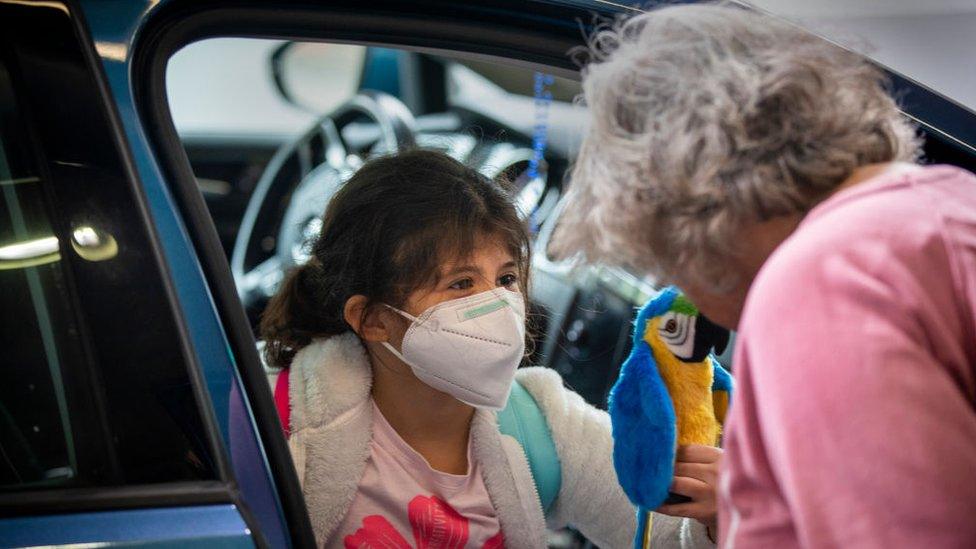
Concerns that family reunions over Christmas could spread coronavirus have led to much tighter restrictions in many parts of the UK.
Some have pointed to the US, claiming that family gatherings at Thanksgiving - at the end of November - led to an increase in cases.
Shadow health secretary Jonathan Ashworth, for example, said: "We saw in Canada and the US, huge spikes in infections after Thanksgiving."
So, what - if any - evidence is there for this?
Travel went up
The Thanksgiving holiday weekend in the US was between Thursday 26 and Sunday 29 November.
There were warnings from US health officials to limit travel and keep gatherings small.
The day before and the Sunday following Thanksgiving saw the largest number of people pass through US airports since the start of the pandemic.
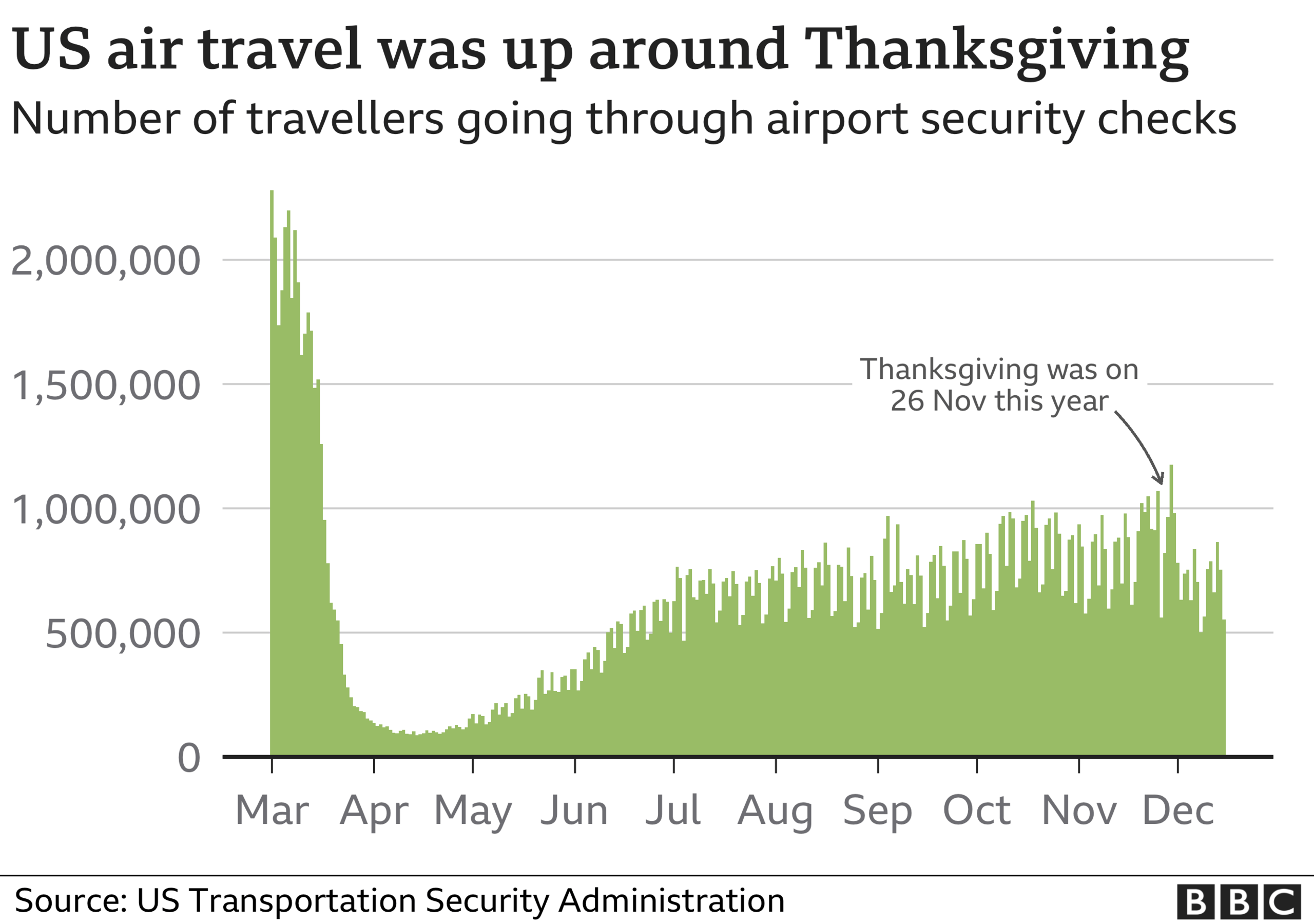
But far fewer people passed through airports than the estimated 26 million travellers in the week surrounding the holiday last year.
Train travel on Amtrak train services over the holiday period was about 20% of what it was at the same time last year, while travelling by car during Thanksgiving was just 5% lower than the same time in 2019, external, according to the Associated Press news agency.
Was there a spike in infections?
Prior to Thanksgiving, infection rates were already increasing across the US and this upward trend has clearly continued.
However, looking at the combined data for the whole of the US, there's no clear indication that infection rates accelerated following the Thanksgiving holiday.
What you can see from the graph is that because of reporting delays around the holiday period, there was a flattening of the curve followed by a catch-up period. But overall, cases rose by about 20% in the two weeks following Thanksgiving - about the same increase as over the two weeks prior to 26 November.
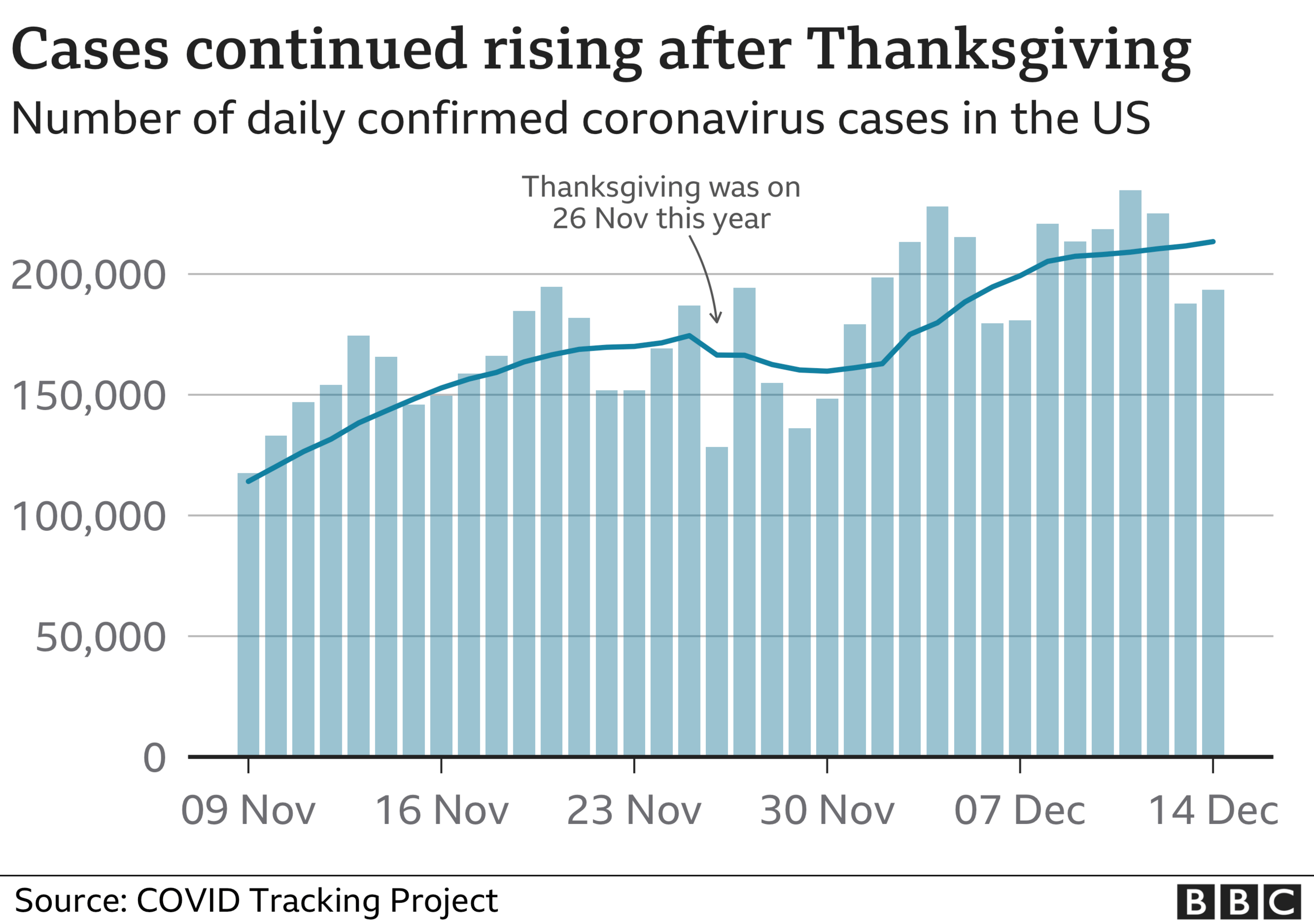
So the overall rate of growth of infections across the US has remained about the same as it was in the weeks before the holiday.
But that's not to say Thanksgiving had no impact on infection levels.
Prof Megan Murray, an epidemiologist at Harvard University, says: "It may be the case that Covid would have started to level off in some places but didn't because of the Thanksgiving travel - but we will never really know that."
We contacted Labour's Mr Ashworth to ask him on what evidence he was basing his comments about "huge spikes" in infections after Thanksgiving, but have yet to hear back.
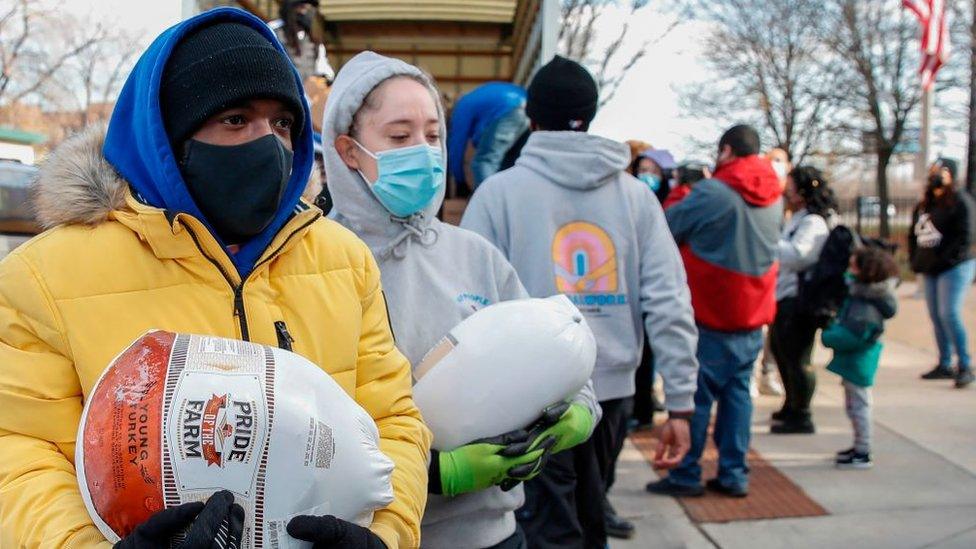
Were some places worse affected?
There have been significant upticks in infections in some areas, such as in Massachusetts, where daily cases increased rapidly in the weeks following the holiday.
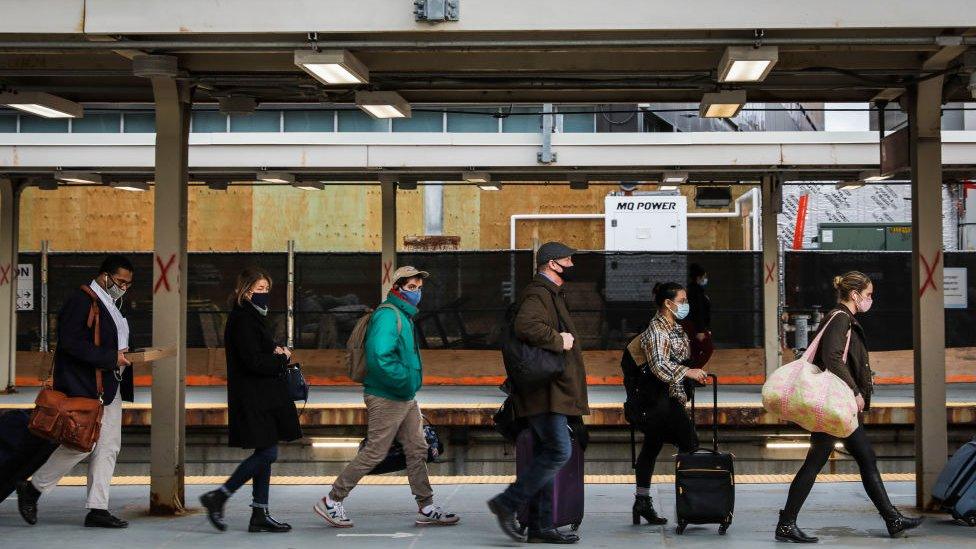
Daily cases in the week leading up to Thanksgiving were relatively steady in Massachusetts, but the state's governor has said infections "took off like a rocket" afterwards.
Some states saw cases drop, but many others have seen infection rates continue an upward trend, with several, such as New Jersey and North Carolina, reporting record daily infections following Thanksgiving.
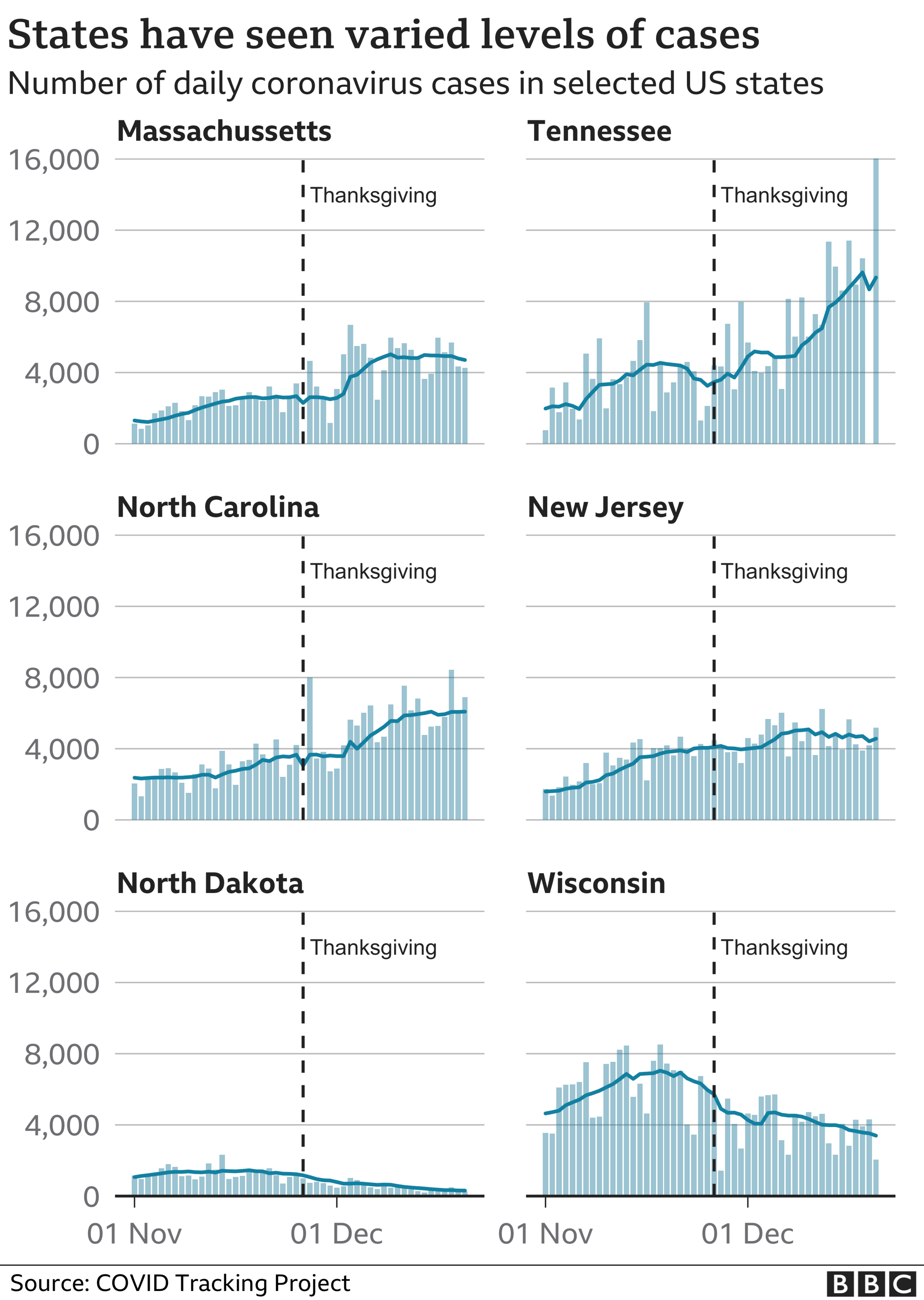
The Covid Tracking Project, which monitors coronavirus statistics in the US, urged caution over drawing any conclusions from the recent data, saying: "Given the high rates of pre-holiday disease transmission, it'll be tricky to perfectly distinguish which events cause the spikes."
What about hospital admissions and deaths?
The three weeks prior to Thanksgiving actually saw more people admitted to hospital each day on average with coronavirus than the three weeks after - but you would expect the full impact on hospital admissions to take longer to show up in the data.
There are currently more people in hospital suffering from Covid-19 in the US than at any other point during the pandemic.
The US has also reported record daily death totals in the last week, more than 3,400 on two separate days.
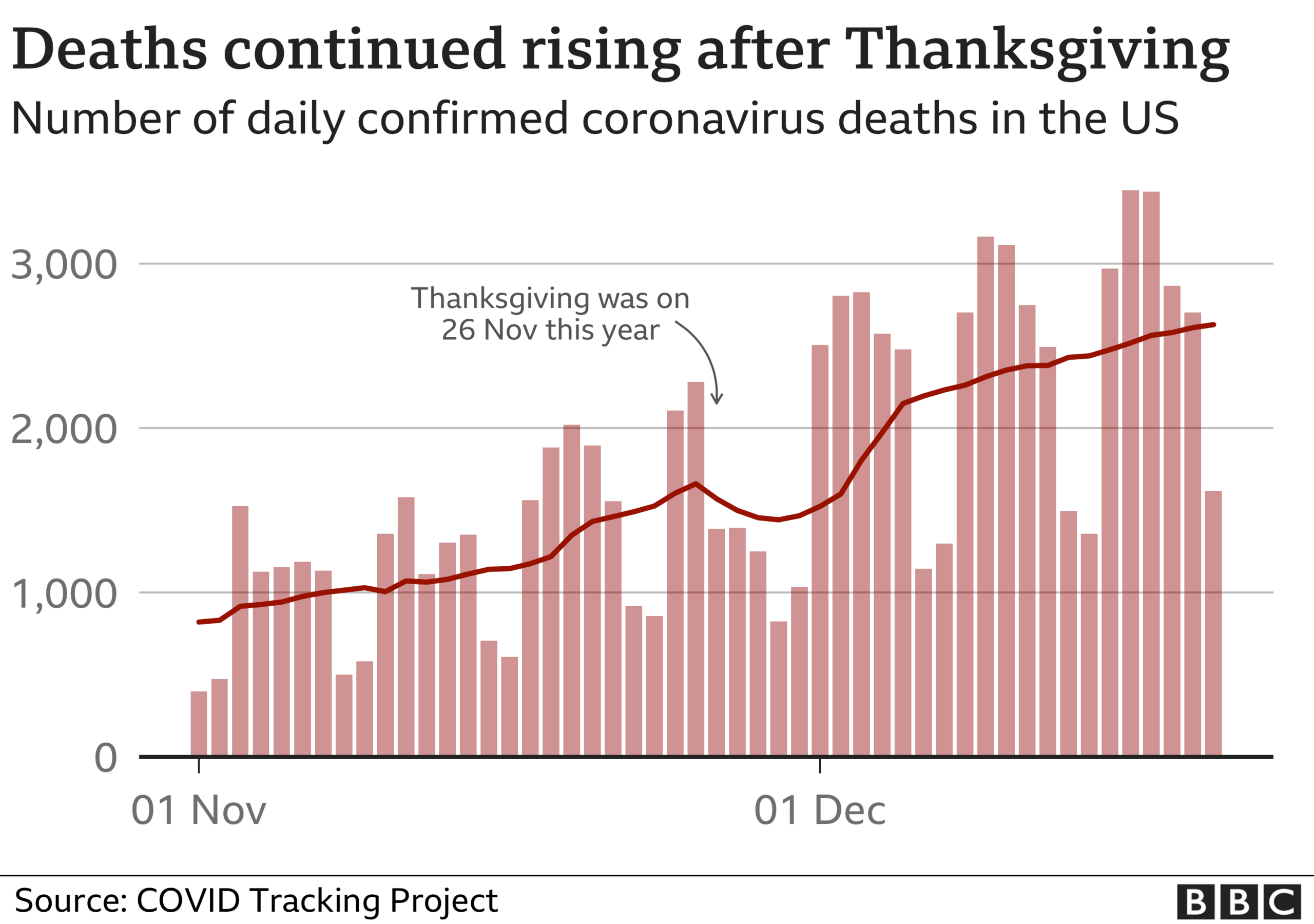
Daily deaths have been rising since about mid-October. Although there were reporting delays with daily death statistics around the holiday, the seven-day average has continued to rise at similar rate in the weeks following Thanksgiving.
It may still be too early to assess the impact on deaths as they can occur several weeks after infection.
The US Centers for Disease Control (CDC) and other medical researchers estimate deaths occur between three to four weeks after infection, external, on average.
What about Thanksgiving in Canada?
Thanksgiving in Canada was six weeks before the US holiday, on 12 October this year.
There were similar warnings to keep gatherings to a minimum and to limit travel.
Daily reported infections have been on a steady rise since early September in Canada, with the rate of growth following Thanksgiving maintaining a similar rate of increase.
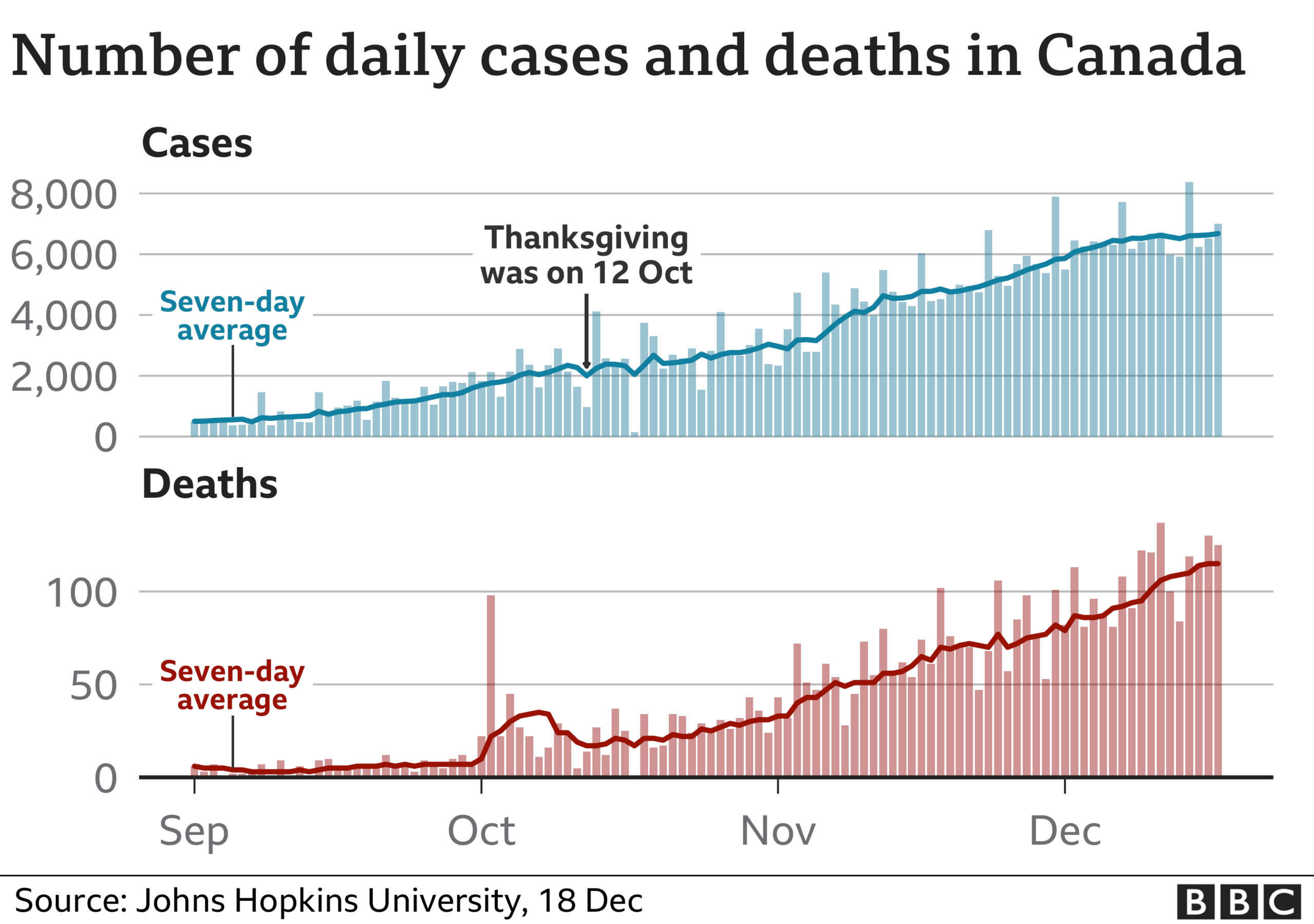
But experts say those numbers don't tell the full story, and insist the holiday led to a significant increase in infections.
Unlike in the US, fewer tests were available in the weeks following Thanksgiving in Canada - so there were more cases identified despite fewer tests being carried out, indicating a more severe spike in infections.
At the start of November, Alberta's chief health officer said: "Many of the cases that we are seeing now are the result of spread over Thanksgiving when families gathered together."
Back in the US, Dr Anthony Fauci, the country's top infectious disease expert, has warned against complacency, saying his concerns for Christmas are the same as his concerns for Thanksgiving, "only this may be even more compounded because it's a longer holiday".

